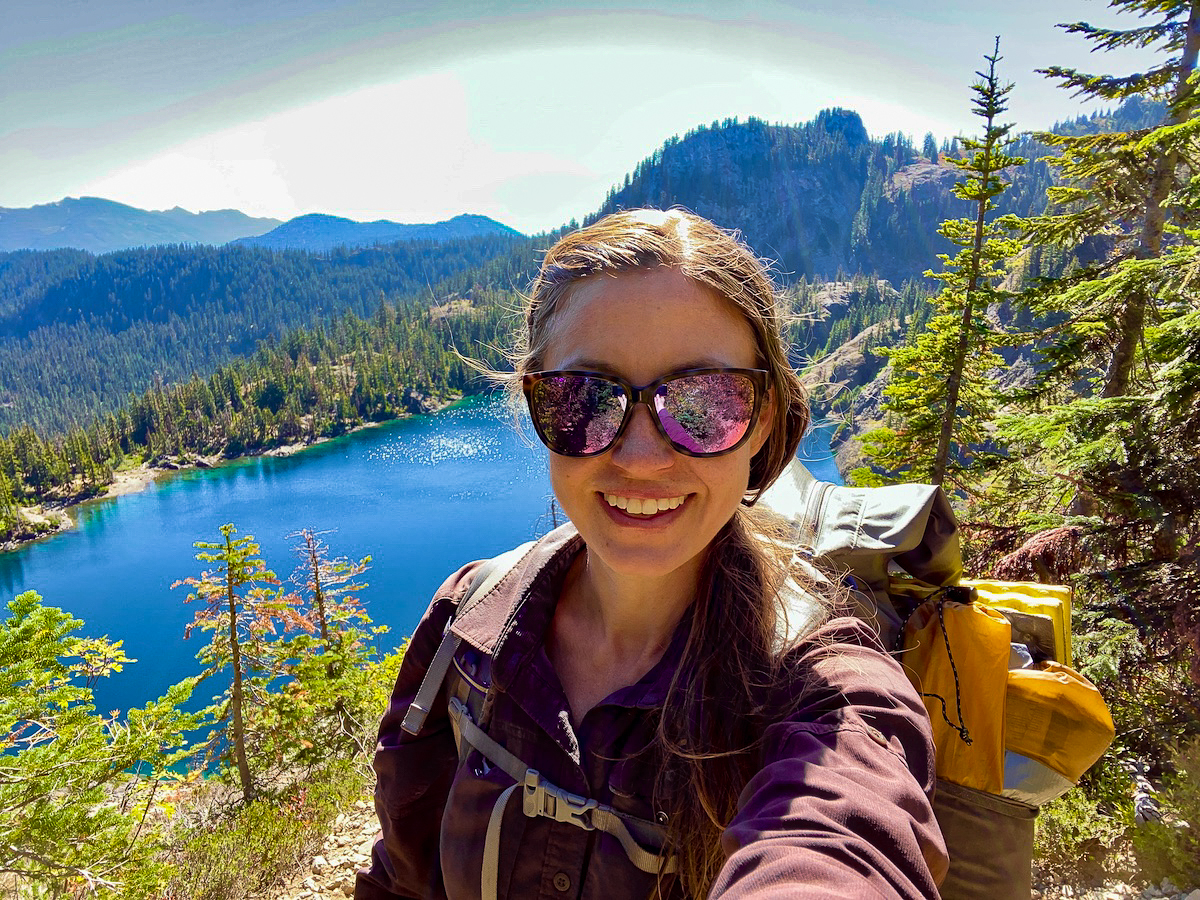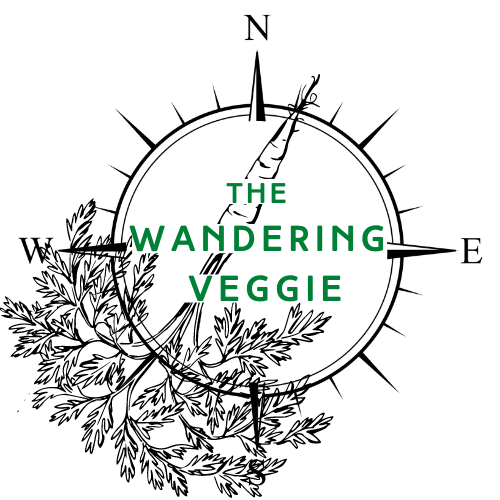When people find out that I eat a plant-based diet, if they give me a puzzled look I know what’s coming next, “But…where do you get your protein?” Everywhere, I get my protein everywhere. Protein deficiency is the United States is practically unheard of – if you’re eating food then you’re most likely getting protein. Think about it – have you ever known anyone that was hospitalized with Kwashiorkor or Marasmus? An aunt, uncle, cousin, or even friend of a friend? No? Protein deficiency affects millions of people, many of them children, in developing countries but it’s just not a thing here.
Rather, we have a problem on the other end of the spectrum – we are drowning in protein. Meat eaters are getting an extreme amount of protein in their diets, which can lead to detrimental health effects. Even vegetarians and vegans are getting 70% more protein than they need.1 That’s right, even the no-meat, no-eggs, no-dairy, no-cheese crowd is scarfing down 70% more protein than they need. Surprised?
We do have a nutrition deficiency in this country, it’s just not in protein. The real question everyone should be asking is, “Where do you get your fiber?” A whopping 97% of Americans are deficient in fiber, and it’s causing heaps of health implications. Inadequate fiber increases risk for heart disease, stroke, high cholesterol, blood pressure, obesity, type 2 diabetes, and certain cancers.2. Why is no one talking about fiber?
Where DO I get my protein?
After my vegetarian cousin would visit my parents for a weekend, the moment she walked out the door they had burgers grilling on the BBQ. “We were craving the protein, we felt so weak,” my mom would tell me as she took a drag off her cigarette, “We just have no energy by the end of the weekend.” The flowing wine and late night card games was never to blame, but I’m certain that a weekend packed full of vitamins and nutrients was not the cause of their low energy. She would list off a few meals they had, many were bean and legume based, and I guarantee they hit their protein mark easily each day. Eggs, cheese, cream, and fish weren’t off the table – my cousin didn’t bring in a radical fruitarian diet for the weekend, they just had less animal protein than normal. When people feel they are “craving protein”, it’s most likely fat and salt they are actually craving. In the case of Kwashiorkor, studies have found that people with severe protein deficiencies have a gut-to-brain signal which does cause them to crave protein and essential amino acids. But this is with actual deficiencies.
I get my protein everywhere. You don’t need animal protein in order to get adequate protein intake, it’s in plant foods. Even healthy grain cereals and spaghetti noodles have surprising protein content. People think of oatmeal as a carb-loaded breakfast, but it has 6 grams of protein per cup of cooked oats. Top with hemp seeds or sunflower seeds and a nut milk and suddenly you’ve got a protein-packed breakfast.
The problem with animal protein is that it comes with baggage: saturated fat, cholesterol, and hormones. Clean protein that’s not wrapped in heart attack material can be found from so many sources, including:
- Beans and legumes
- Nuts and seeds
- Plain ol’ vegetables!
- Tofu and tempeh
- Oats
- Wild Rice
- Hemp seeds
- Soy and nut milks
- Chia seeds
- Seitan
How much protein do we need?
Adults need 0.8 or 0.9 grams of protein per healthy kilogram of body weight per day. That’s like your ideal weight in pounds, multiplied by four, and then divided by ten.3 So, a healthy person weighing 150 pounds would need about 60 grams of protein per day.
I need about 42 grams of protein a day. As I type this, between the soy milk in my coffee, peanut butter spoon, and whole grain cereal, I’ve already hit about 30 grams. This is before lunch!
"One farmer says to me, 'You cannot live on vegetable food solely, for it furnishes nothing to make the bones with;' and so he religiously devotes a part of his day to supplying himself with the raw material of bones; walking all the while he talks behind his oxen, which, with vegetable-made bones, jerk him and his lumbering plow along in spite of every obstacle."
-David Thoreau
I love this quote, it hits the nail on the head. The strongest animals in the world get their strength from plants. The only thing we get from animal products that we can’t get on our own is vitamin B-12, but this is so easily supplemented!
What happens when you eat too much protein?
It’s too much of a good thing. I remember hearing years ago about a girl that took ecstasy at her birthday party and drank so much water that she died from water intoxication. That story stuck with me, it’s a good reminder to maintain balance – even the elixir of life can be fatal in high doses. Protein is no exception.
Weight gain – As much as you’d like to imagine all the protein you eat being turned into big, strong muscle – the reality is that it just stores as fat. Over time, this leads to the dreaded weight gain.
Heart Disease & Cancer
Too much animal protein causes an increased risk of heart disease4 (the number one killer in the United States,) and cancer. Animal protein causes our body to produce higher levels of the hormone insulin-like growth factor-1 (IGF-1) which has been associated with increased cancer risk, including cancers of the breast, endometrium, prostate, colorectum, pancreas, and kidney.5
Bone loss
Excess protein causes an increase in acid in the body, which the kidneys respond to by excreting acid, while at the same time the skeleton protects itself by reabsorbing calcium – resulting in bone loss 6and an increased risk for osteoporosis that even a high calcium diet can’t remedy.7
Iron overload
Heme iron is found in animal products and is a faster absorbing iron than the non-heme iron found in plants. While this is is a good thing, the problem with heme iron is there’s no “off” button. Heme iron just keeps building up and our bodies don’t have a good way of disposing excess iron. This can cause free radicals in the body, damaging important cell structures. When our bodies reach a sufficient amount of non-heme iron from plants, our bodies can regulate it. There’s tricks to help absorb non-heme iron. One simple way is to add vitamin C foods to your diet! Citrus, bell peppers, broccoli, strawberries – just to name a few tasty ones. In my green smoothies, I love to add a slice of lemon – yes, with the peel!
FLD
Diets high in animal protein may increase the risk of fatty liver disease, and people that are overweight and elderly are especially at risk.
Why the obsession with protein?
Macronutrients (fat, protein, and carbohydrates) are nutrients that are required in large amounts in the diet and over time each one seems to rise and fall from fame. Think back to all the fad diets that rise to popularity: they’re always eliminating one macronutrient while fixating on another.
I was a sucker for those fad diets. In my 20s, I was under the impression that in order to maintain my slim waistline, fat was the absolute enemy. It appeared to be a simple equation: fat = fat. I avoided fat at all costs while eating a diet mostly bread and cereal since the fat content was low, completely oblivious that excess carbs turn into fat.
At some point, media changed my mind. Carbohydrates became the ultimate enemy while protein was placed on a pedestal like a miraculous muscle-building essence. I ate a lot of animal protein and anything that advertised it was high in protein, suddenly avoiding carbs like the plague.
“You’re going to eat all that bread?” I’d ask, sipping my protein shake and eyeing my sister’s sandwich, “You’d be better off eating the contents and ditching the bread – it’s Frankenwheat,” I’d announce. I would buy whole chickens from the deli for lunch and scoff at the notion of rice. “Rice is just a filler,” I’d say, with zero backing behind any of my statements. One day, my sister informed me that rice and beans make a complete protein. “Hmm…I don’t know about that,” skeptical that rice could make a complete anything. I imagined that the protein alone could give me all the strength and energy I needed for my active lifestyle, thinking each bite of protein was building more and more muscle. I was, once again, oblivious that excess protein stores in the body as fat rather than muscle.
I kept hopping from one fad diet to another, and what happened? I gained an excessive amount of weight that I couldn’t get rid of, I lacked energy, and I just didn’t feel well. I was going about it all wrong because I didn’t understand what our bodies need: a balance of all the macronutrients from whole, plant-based foods.
Currently, we are still in the protein craze, despite all the studies showing that excess protein may cause health implications and literally no one has a protein deficiency in developed countries. Why? Is it a marketing ploy? With protein-zealous consumers seeking out high protein products in the store, product labels scream their protein content front and center, feeding the frenzy. If you’re eating a colorful diet rich in fruits, vegetables, beans, nuts, seeds, whole grains, and legumes, you’ll do just fine with hitting the protein mark – without the baggage.
- https://nutritionfacts.org/video/do-vegetarians-get-enough-protein/
- https://www.ncbi.nlm.nih.gov/pmc/articles/PMC6124841/
- https://nutritionfacts.org/video/the-great-protein-fiasco/
- https://www.ncbi.nlm.nih.gov/pmc/articles/PMC7053091/
- https://www.ncbi.nlm.nih.gov/books/NBK216648/
- https://pubmed.ncbi.nlm.nih.gov/9614169/
- https://www.ncbi.nlm.nih.gov/pmc/articles/PMC4045293/






















I’m definitely overweight and always protein conscious. Thank you for the article.
You’re very welcome James, thank you for reading! 🙂 I’m not a professional, but I spend a significant amount of time nerding out and reading health and nutrition studies. I enjoy learning what I can and I love to share what I find out!
It is really refreshing , as well as beneficial , to read this basic explanation of protein sources for the person considering a plant-based diet strategy . Eating a diet rich in plant-based protein as well as an adequate consumption of fiber is an excellent way to maximize your health & happiness ! Bon appetit ! WooHoo ! !
I’m glad you enjoyed! I agree, plants = health and happiness!